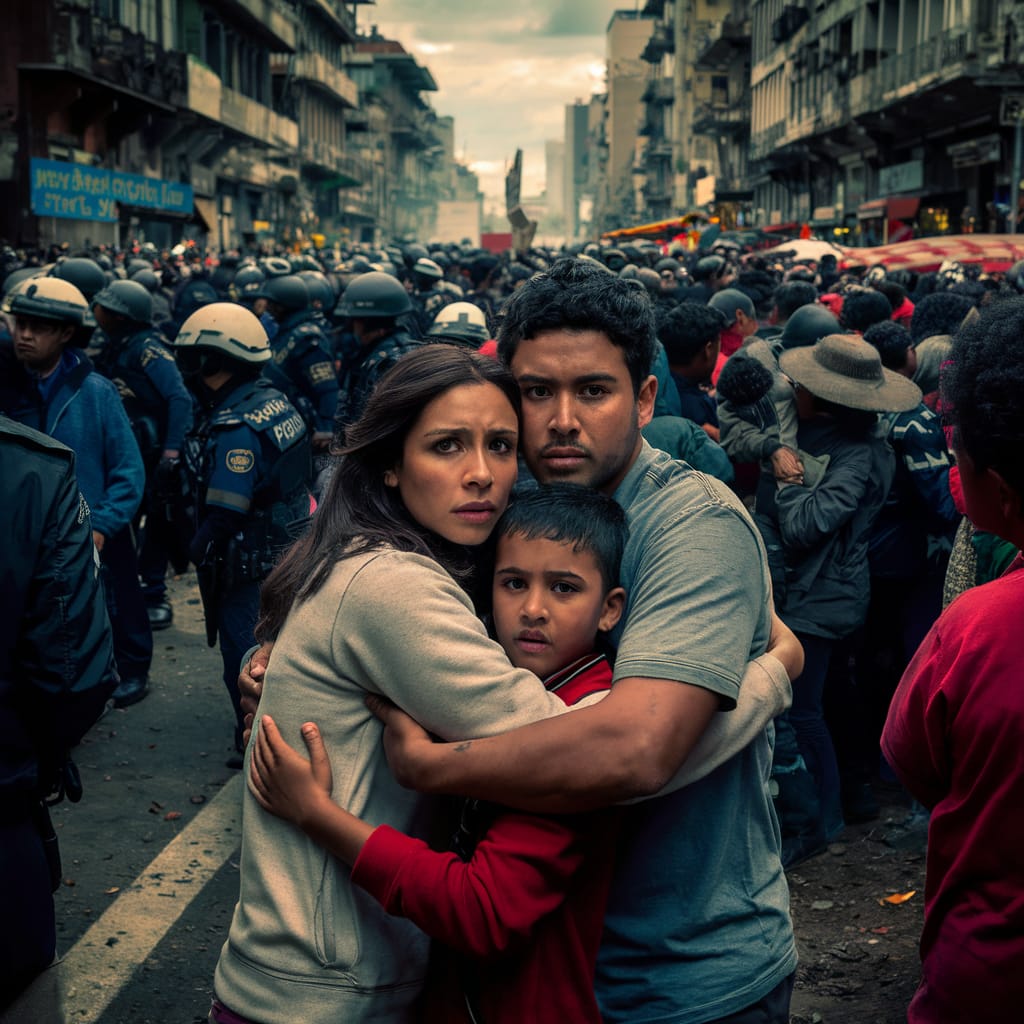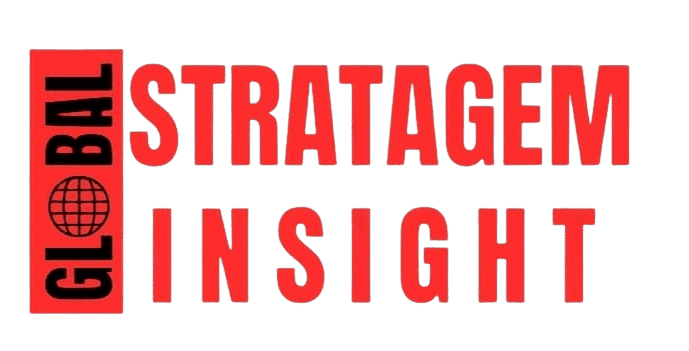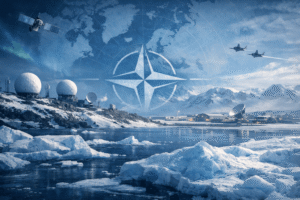Analyzing Human Security in Venezuela Amidst Political Instability

Venezuela used to be one of the wealthiest nations in Latin America, but its decline and current predicament serve as a stark example of how bad governance and economic hardship can devastate a nation. The economic sanctions, even employed to target the Mudauro’s regime, worsened the situation in already struggling country due to its political instability, resulting in strengthen the various crises in the country. These crises deprived the residents of the basic needs i.e. food, safety and health, day by day effecting the human security. Mainly, economic sanctions are imposed in any country to encourage the Democratic situation and human rights but in case of Venezuela these factors have not only led to economic collapse, but also forced its residents to face difficulties and as a result 7.7 million Venezuelans left the country.
Economic sanctions are restrictions imposed by countries or international organizations to restrict trade and economic relations with particular countries or organizations for political or security reasons. They can be generic or targeted, and are used to achieve foreign policy objectives, such as fighting terrorism and promoting human rights, often serving as a lower-risk alternative to military intervention. Economic sanctions in Venezuela are in response to political and humanitarian concerns in the EU and some Latin American countries especially the US. The U.S. Department of State summarizes many of the sanctions on its official website, these sanctions target the Venezuelan government led by President Nicolas Maduro, particularly human rights abuses that run through the country important oil industry related to, and because of widespread allegations that corruption.
The measures also stem from concerns about the legitimacy of elections in Venezuela, which many international observers consider fraudulent, and accusations of government involvement in terrorism and drug trafficking of the Sanctions aimed at forcing the Maduro regime to restore democracy and improve the human rights situation in the country. US Department of State spokesperson Matthew Miller said that “We are concerned that Maduro and his representatives prevented the democratic opposition from registering the candidate of their choice, harassed and intimidated political opponents, and unjustly detained numerous political actors and members of civil society”.
ECONOMIC OVERVIEW
The Venezuelan economy has been in steep decline for over a decade, influenced heavily by falling oil prices, governmental mismanagement, and the impact of international sanctions. These factors have changed this economic rich country to a Petro state. In 1973, it is highest percapita income generating country the region but when in 1998 Hugo Chávez, elected president of Venezuela, initially aimed to reduce poverty using the country’s oil wealth. Although his “Bolivarian missions” cut poverty by about 20%, his policies led to a decline in oil production. Key mistakes included firing thousands of experienced PDVSA workers during a 2002-2003 strike, which diminished the company’s expertise.
Additionally, Chávez’s subsidized oil provision to other countries depleted Venezuela’s reserves, and by the end of his presidency in 2013, government debt had more than doubled, highlighting significant economic mismanagement. Then the political instability during Maduro’s regime further deteriorate the economic conditions in addition to the crises faced by country due to economic sanctions and COVID-19 pandemic. Venezuela exemplifies a failed petro state, heavily reliant on oil, which has financed nearly two-thirds of the government’s budget. The economy suffered severely after oil prices plummeted from over 100 per barrel in2014 to under 30 in 2016. Despite a 5% growth in 2023, GDP shrank by roughly 75% from 2014 to 2021. Oil production has declined due to inadequate investment, although exports rose by 12% in 2023 due to eased U.S. sanctions. With an estimated debt burden exceeding $150 billion and inflation hitting 190% in 2023, the economic outlook remains bleak.
Human Security Implications
In 2017, the U.S. government enhanced the sanctions to tackle unelected government of Venezuela, But the U.S. attempts to destroy Venezuela’s elected government promptly collapsed, and civilians stood by the consequences of the U.S. sanctions, and civilians have borne the ill-consequences of US sanctions. The constant economic instability due to a number of factors has great impacts on human security. The World Food Program estimates that one in three Venezuelans faces food insecurity and requires assistance. According to the 2020 National Survey of Life Conditions, 8% of children under five were acutely malnourished, and 30% were chronically malnourished. In the most vulnerable neighborhoods, Caritas reported that 14.4% of children under five suffer from malnutrition. Access to maternal health and reproductive services in Venezuela has worsened due to the Covid-19 pandemic, exacerbating an already critical situation.
There is an estimated 80% scarcity of contraceptives, according to UN Office for the Coordination of Humanitarian Affairs (UNOCHA), and 352 maternal fatalities were reported in 2019. Pregnancy centers around the country have stopped offering prenatal and postnatal care, and nongovernmental organizations have reported that pregnant patients who may have Covid-19 are not receiving timely care. Over 40,000 deaths in 2017–18 were attributed to sanctions, according to a report by the Centre for Economic and Policy Research. They have also caused millions of people to flee the nation, raised sickness and mortality rates, and played a significant role in the economic crisis that has resulted in shortages of food and medication.
The Venezuelan government has been clamping down on dissent and regulating the media for more than ten years. It has suspended websites for vague reasons like “incitement” and prosecuted those who are thought to be impolite to the administration and officials, resulting in lack of freedom of expression in the country. Even though some media outlets criticize the government, self-censorship is common because of fear of retaliation. Further restricting free speech is the 2017 Law Against Hatred, which levies harsh fines for disseminating words deemed intolerable. Additionally, during the Covid-19 state of emergency, numerous people have been charged for criticizing public authorities or policies on social media.
The humanitarian situation in Venezuela is being reported by the United Nations High Commissioner for Human Rights (OHCHR), who is also keeping an eye on continued abuses such as arbitrary arrests, torture, and forced disappearances. The International Criminal Court (ICC) initiated a first investigation in 2018 regarding claims of disproportionate force against protestors and grave mistreatment during incarceration. A probe was requested by six ICC member states. Meanwhile, in 2020, Latin American countries hosting Venezuelan migrants convened under the Quito Process to coordinate responses to the migration and humanitarian crises, pledging to enhance international cooperation in addressing these urgent issues.
The UN Humanitarian Response Plan sought 762.5 million to aid 4.5 million of the most vulnerable people in 2020, including 87.9 million specifically to address the health and socioeconomic impacts of Covid-19. This was due to the estimated 7 million people in Venezuela who were in need of humanitarian assistance.
Venezuelans face severe challenges due to hyperinflation, making basic food unaffordable, as a month’s salary often fails to cover essentials. Supermarket shelves are frequently empty, and the health sector suffers from 85% medicine shortages, prompting many medical professionals to leave the country. The bolivar has lost significant value, requiring 14 million bolivars for a chicken, leading the government to introduce new banknotes removing five zeros. This crisis has resulted in widespread poverty and a collapse in living standards across the nation.
Without a concerted effort from both domestic and international actors to address these challenges, the situation in Venezuela is likely to worsen, perpetuating the cycle of instability and insecurity. To restore human security and rebuild the country, it is essential to foster an inclusive dialogue aimed at political reconciliation and to alleviate the economic burdens faced by its citizens.



